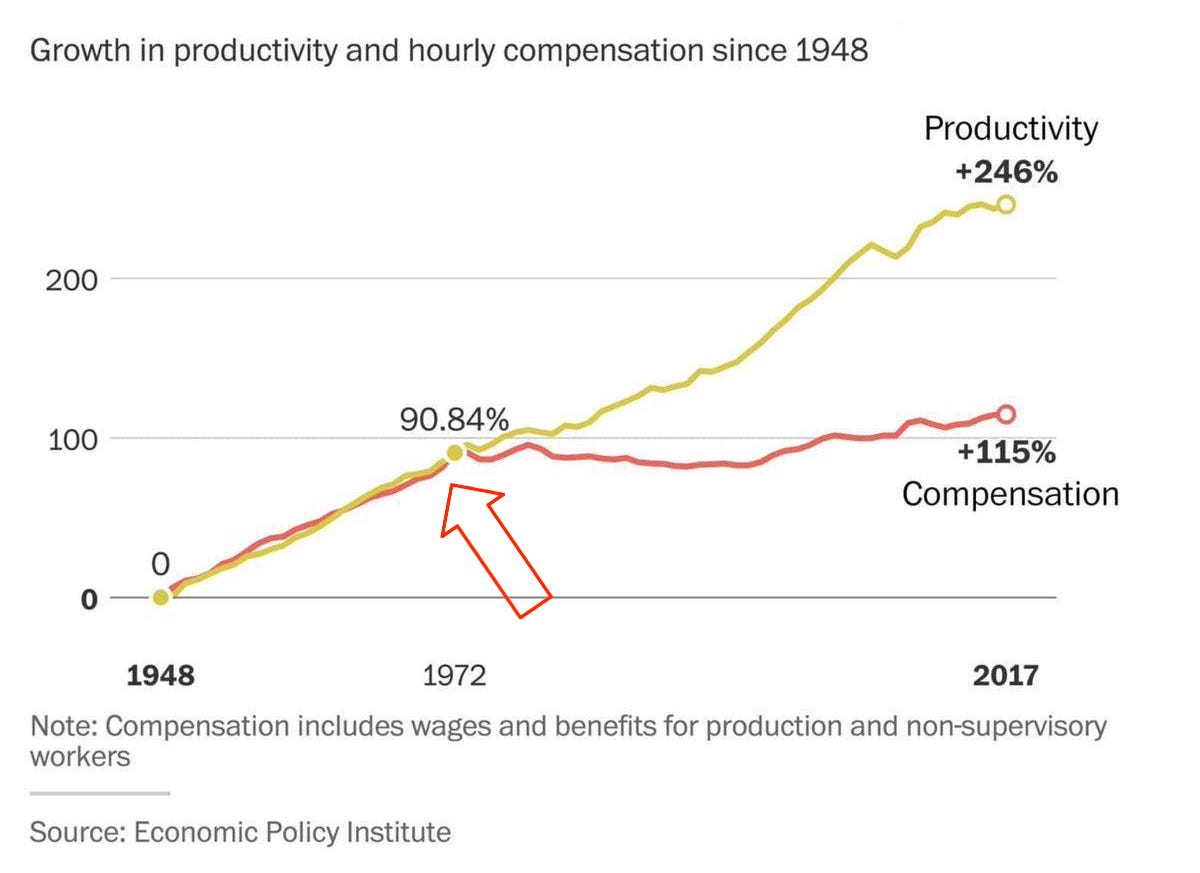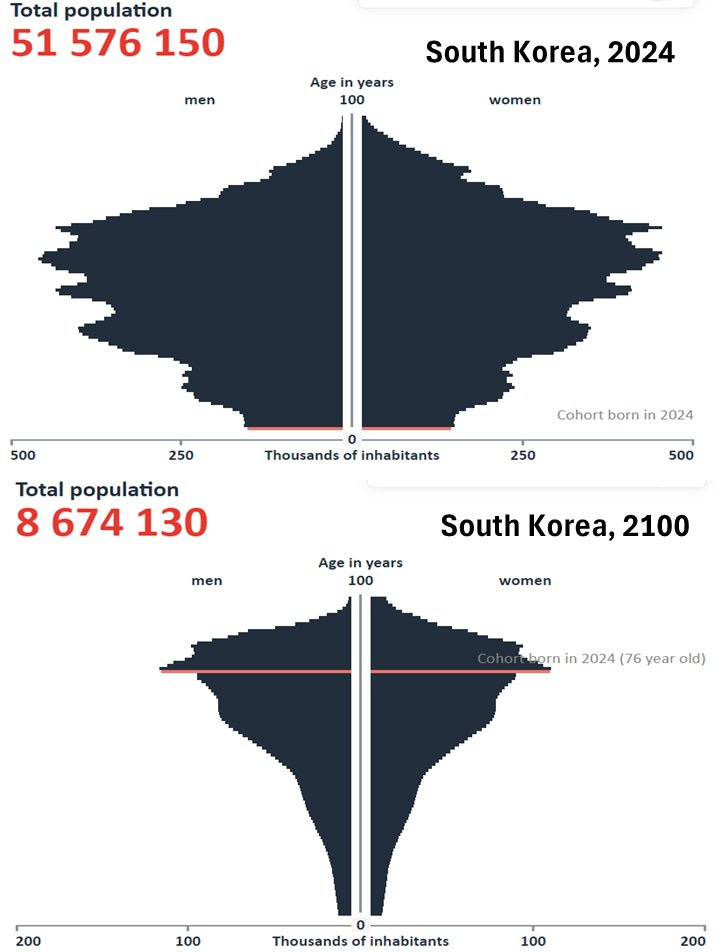Welfare State Endgame
The transition to digital culture is lifting many masks at once. There is an international version of the phenomenon: the post WWII so called “rule based order” is crumbling now that the USA don’t want, or aren’t able anymore, to take the role of a global cop. Suddenly people wake up and (re)discover that right does not make might. But this is from the national standpoint that I am going to talk about here. The very idea of “nation-state” becomes fuzzy for most. A huge factor is the ability to travel from anywhere to any random point on the globe in less than 24 hours. It is a reality for average middle class citizen not an elite restricted thing. Likewise, worldwide instantaneous communications are available even to less than two digits years old kids. In parallel to this topological revolution there is an unprecedented decline in organized religions. The result is a weird mental state: people feel the absence of something they can’t put their finger on it. The very idea of nationalism has been rendered toxic because of WWII. Just like a psychic trauma they can’t think the very idea of nation. The boomer got it ok because of growths: the GDP was growing, the sky was the limit and welfare state progress were efficient masks. Then it stalled.
Sisyphus
The only area in which growth continued unabated was in communication and information technologies. If you time-transport someone from 1972 to today, then nothing will shock him much but for IT stuff. Airplanes don’t go faster —ok they are more reliable and are more efficient— or have a design that would go beyond reasonable expectations. Likewise in 1972 there were already humans walking on the surface of the moon, there were nuclear plants, ICBMs etc. But there were no social media nor pervasive communications. The growth of the virtual space also helped to hide the fact that civilization was running on the fumes. Maybe it culminated around 2012-2016 with the globalization of smartphones. The AI revolution is hyped but is not on the same level in my opinion. It is a progress in quality, you can see them as better versions of Google search. Maybe something like the printing press: the real shift happened when moving from an oral to a written culture. I tend to see the shift towards digital has something of this magnitude. But let’s get back to the subject of this essay: now that we are fully in a digital civilization the progresses, in the digital space, are no longer of the same nature. They rather take the form of incremental changes rather than ruptures. The catch 22 lies in the fact that digital civilization is there but not evenly distributed. Most western institutions are still living in the illusion that the new normal is just the continuation of the old normal plus social media and smartphones.
Yet in the material space things have stalled and it becomes very hard to pretend otherwise. The never ending discussions about retirement in France is a good example. The material course of event can’t go on. Like when Sisyphus has reached the top of the mountain. You can’t go higher. All material needs have been fulfilled yet the situation is not stable, like in Sisyphus story the rock is going downhill soon. The fertility rate worldwide is not going to be fixed anytime soon. Materialists see that and are paralysed because they don’t know how to go on from there. If your existential goal is to move from Iphone 12 to Iphone 13 then you are demoralized because Iphone 12 was already beyond your human capacities: the network was fast enough to watch any spectacle live (so doubling the speed won't make you able to see twice the amount of content), there is enough content on the internet for you to entertain you beyond 500 lives. Moving towards 5G won’t bring you any measurable difference (it is cheaper, less energy consuming but on the user end you can’t *see* the difference). I see here a major explanation of the insanities of the last years on political stage. Like a chicken without a head, progressives without progress run in circles with blood spilling out and their force waning. This is why today in social media everything is a caricature of a caricature of a caricature.
Communities
Online communities are matter of choice. In that it departs from traditional communities. We never had a complete choice to whom we were interacting with on a daily basis. Today we have through social media. On top of that you have travel capabilities that match this liberty. In some sense we have solved the material issues but also the inconvenience issue of having to deal with tradition and civilization. The decline in organized religion, where every Sunday all the village or the neighborhood goes to the mass has vanished. Likewise chess clubs have seen their members stay home to play online chess games with adversaries situated across the ocean. And so on, you can choose your area of interest and see how local communities have been dissolved by the digital revolution. The material aspects of communities have been erased and we are now left with communities of choice. A bit like marriage that used to be a building block of society (families marrying kids together for legacy purposes) is now today only lived through the concept of choice (the person you love). It is very liberating and the point is not.jusy to say that before it was better. The point is to notice that it was working and society was more stable. We have reached such a point of instability that the very existence of a society is endangered. Look at the population distribution in South Korea of today and projected.for 2100:
This is what the endgame of welfare state looks like. Of course the 2100 pyramid is never going to happen. The country will be invaded or will crash long before or it will be replaced by immigrants. Already today there are less Korean girls born in 2024 than there are girls in my mid-size town. We are talking about a country of more than 50 million inhabitants.
The problem is not going to be solved by tinkering the marginal rate of this tax or changing the benefits of social welfare programs here and there. If your only horizon is materialist then only present is important. The inability of modern citizens to locate themselves in time has led to massive disorientation.
I am sorry but there are no magic recipes and it is not going to be solved by the next administration. We don’t have political problems, we are having civilization problems. Those problems are not linked to the shift towards digital civilization. They are linked to visions of what is life worth living for? What does it mean to be from a specific country? Digital technologies only make the problem more visible and more acute, they don’t create the issue. For most of human history the question of national identity was not relevant because we had no real choice. So it was never thought correctly. It is time to think about it now. Seriously.



